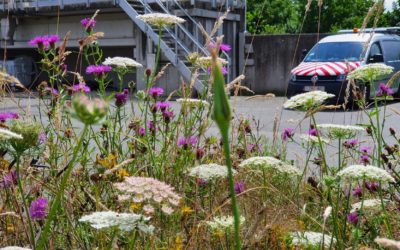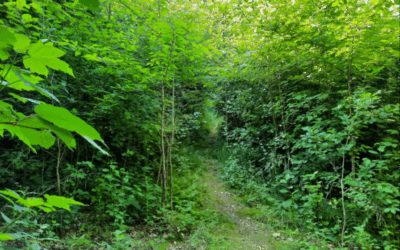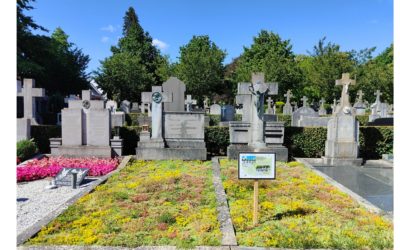Local approach to biodiversity at Aquafin’s wastewater treatment plant sites.
Mini-bos in het Josephine-Koch-park
Het project
Sinds eind oktober 2023 groeit in het Josephine-Koch-Park een minibos dat is gemodelleerd naar een oerbos zoals dat er zonder menselijke activiteiten uit zou zien. Normaal gesproken zou het ongeveer 200 jaar duren voordat zo'n bos zich vanzelf heeft ontwikkeld. Met de methode van botanicus Akira Miyawaki wordt een vergelijkbaar resultaat bereikt in 20 jaar.
Deze methode is gebaseerd op de mechanismen en diversiteit van de natuur: 15 tot 30 inheemse boom- en struiksoorten worden in één bos geplant. Deze soorten werken heel goed samen en zijn perfect aangepast aan de klimatologische omstandigheden van de plantlocatie.
Deze leefomgeving wordt steeds complexer en vormt, in evenwicht met de huidige bodem- en klimaatomstandigheden, een prachtig ecosysteem dat de toename van de biodiversiteit bevordert.
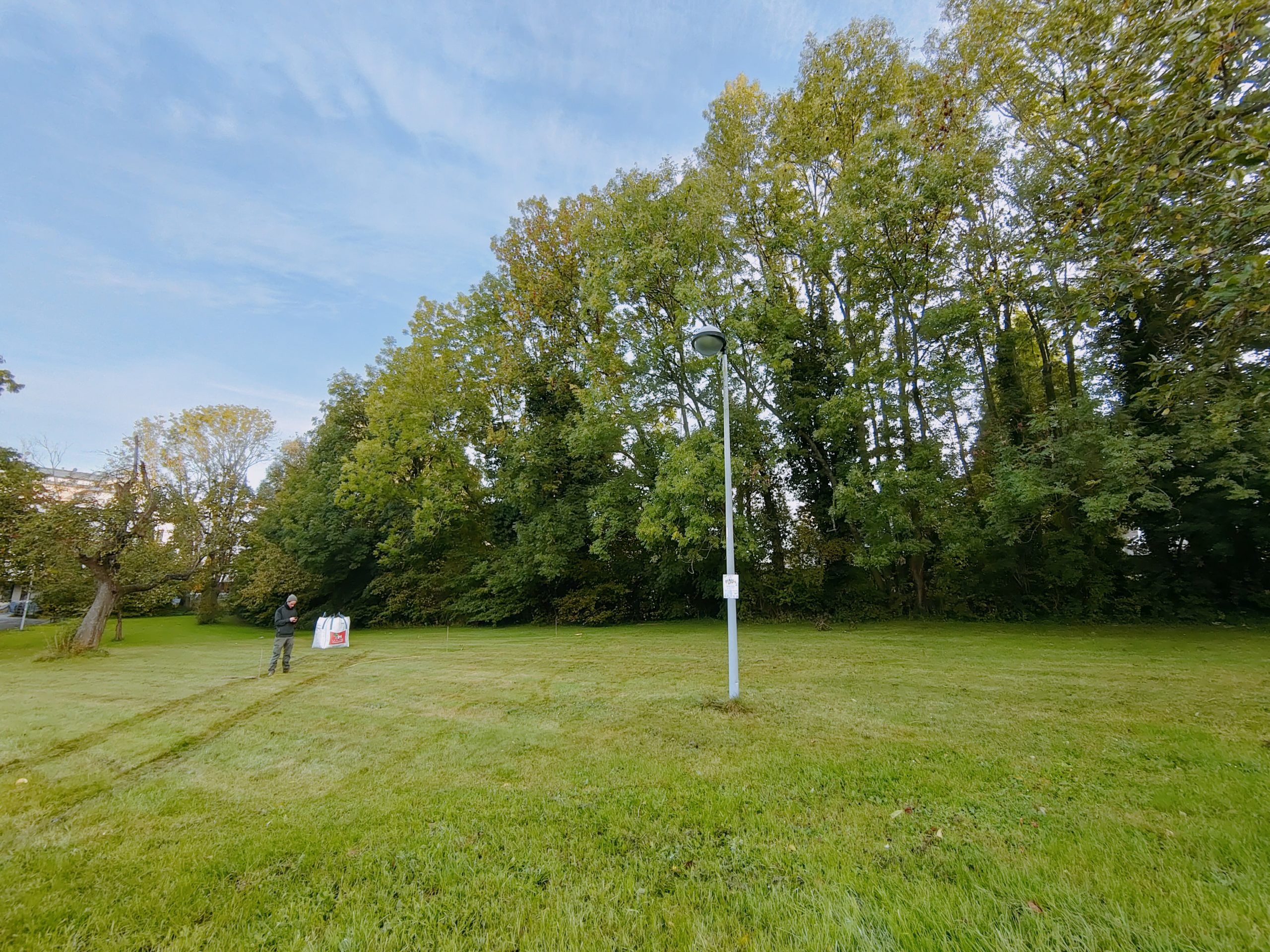
Locatie project
Bijdrage(s)
Projectkosten
Deelnemer(s)
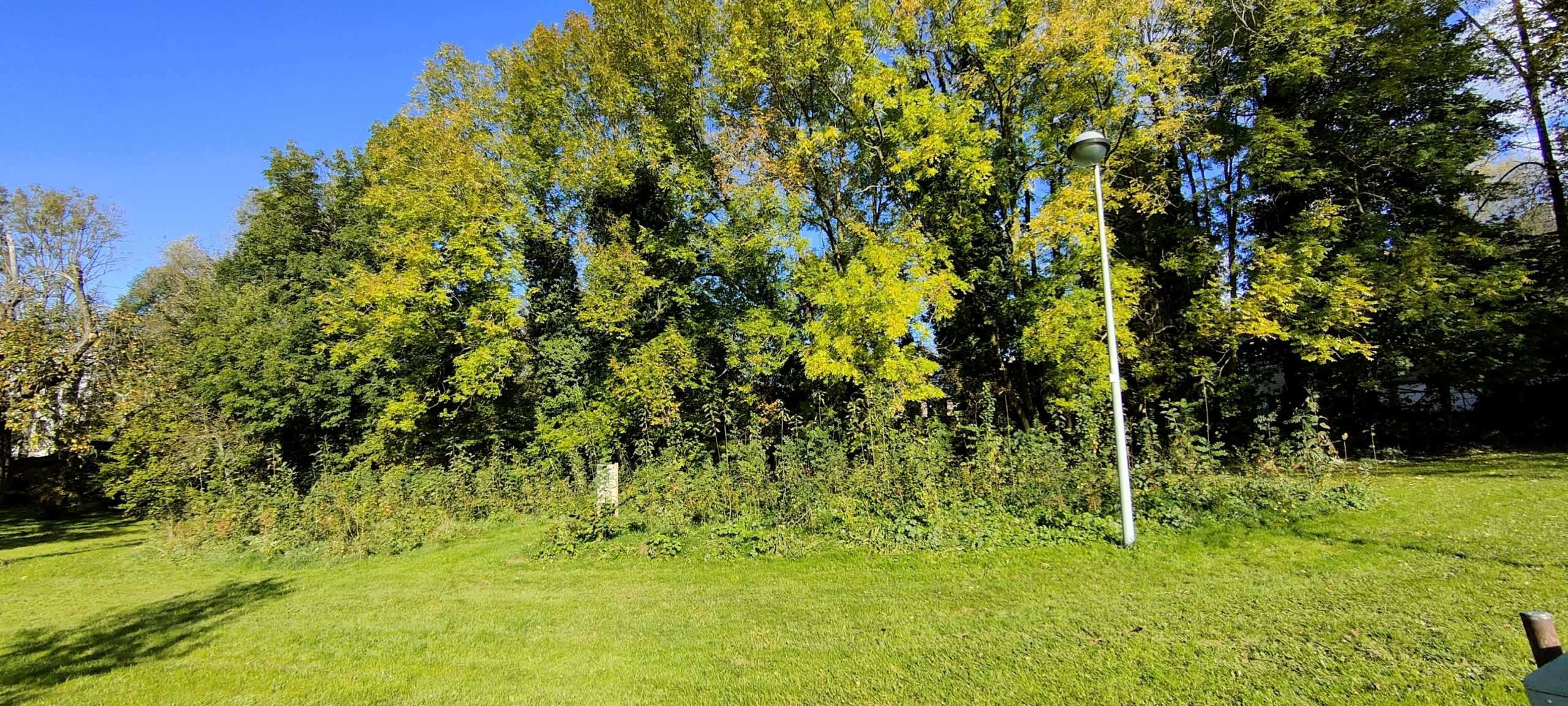
Dit project werd gerealiseerd in het kader van het programma “BiodiverCité” met financiële steun van het Waalse Gewest.
Dit project werd uitgevoerd door de stad Eupen in samenwerking met UrbanForests, basisscholen, kleuterscholen en omwonenden.
Hoe wordt aan de criteria van de doelstelling voldaan?
Stedelijke en voorstedelijke gebieden
- De specifieke ecologische kenmerken van het gebied (e.g. de topografie, het landschapstype, de plaatselijke fauna en flora);
- Zorgen voor een aangepast beheer dat gunstig is voor de biodiversiteit (e.g. herwilderen en beperkt maaien van parken, tuinen, bermen, vijvers, geen chemische producten);
- Zo veel mogelijk "natuurlijkheid"/zo weinig mogelijk verandering van het oorspronkelijke landschap (landschap, kwaliteit van het water/de bodem, ...);
- De aanpassingen in het omliggende gebied en milieu integreren;
- Inheemse en lokale soorten/subsoorten gebruiken die veerkrachtiger zijn en beter bestand tegen klimaatverandering.
Mogelijke initiatieven waarbij het project betrokken is :
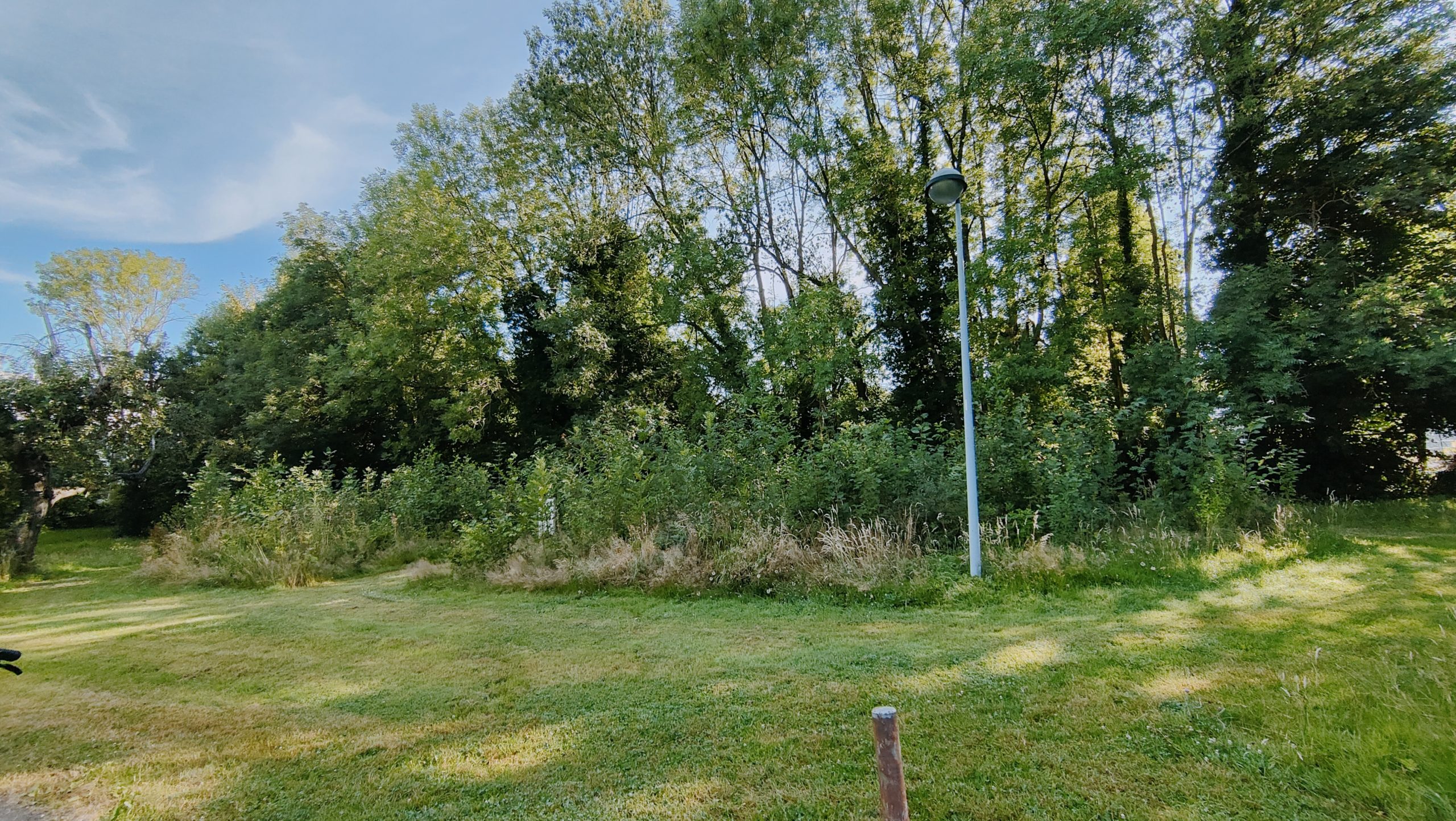
Onderhoud op lange termijn
Alleen in de eerste twee jaar na het planten werd er onderhoud gepleegd. Hierbij werd het onkruid met de hand verwijderd, zodat de kleine bomen en struiken niet zouden worden overwoekerd door de sneller groeiende kruidachtige ondergroei. Na twee jaar zijn de bomen en struiken al zo goed ontwikkeld dat er geen onderhoud meer nodig is.
Voordelen
Op het terrein van het huidige minibos lag vroeger een hooiland in het stadspark. Door het aanplanten van het minibos ontwikkelt zich nu een prachtig ecosysteem dat de biodiversiteit op deze locatie bevordert.
We passen de principes van de Miyawaki-methode toe, die zijn oorsprong vindt in Japan en zich ondanks verschillende bodems en klimaatzones wereldwijd heeft bewezen. Bij deze aanpak kiezen we inheemse soorten die zijn aangepast aan de lokale omstandigheden, op basis van wetenschappelijke criteria zoals de potentiële natuurlijke vegetatie (PNV) en veldobservaties. Het doel is om op kleine schaal sneller een inheems bosecosysteem te herstellen en zo de positieve effecten op het stadsklimaat, de habitatfuncties en de CO2-binding sneller te laten werken. Door de ligging midden in de stad ontstaat een bijzondere plek om de natuur te ervaren. Hier kan men de bosopvolging in versnelde tijd observeren.
Andere projecten in verband met de doelstelling: “Stedelijke en voorstedelijke gebieden"
Micro-bossen
UrbanForests is gespecialiseerd in het creëren van participatieve micro-bossen, 100% natuurlijk en volgens de Miyawaki-methode.
Levendige begraafplaats in Eupen
In plaats van graven met grind te bedekken, wordt hier onderhoudsarm permanent groen getest.
